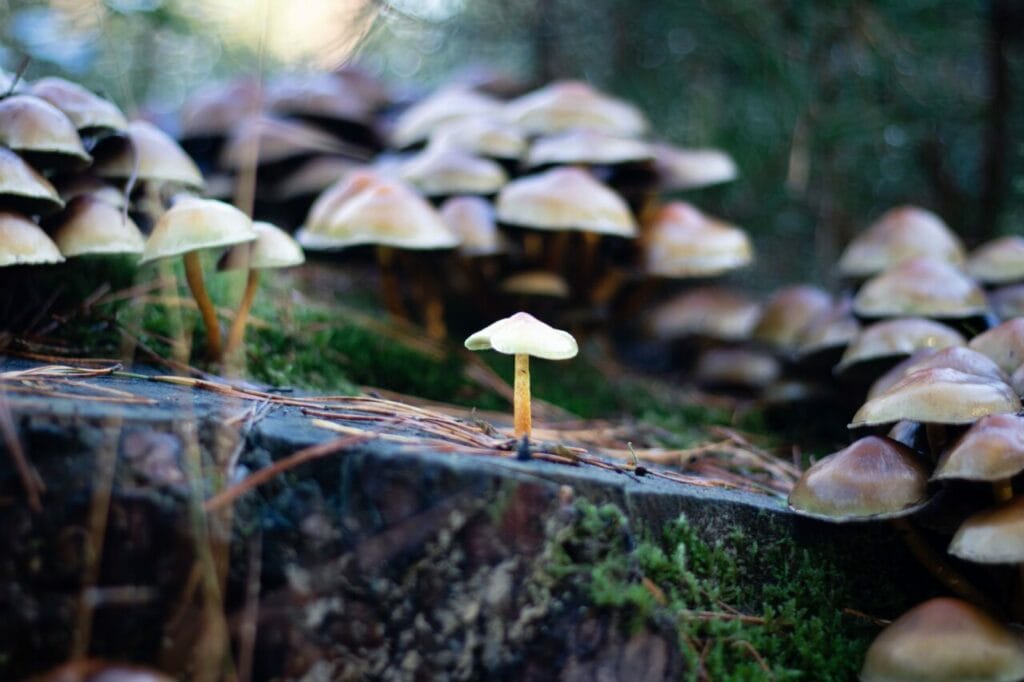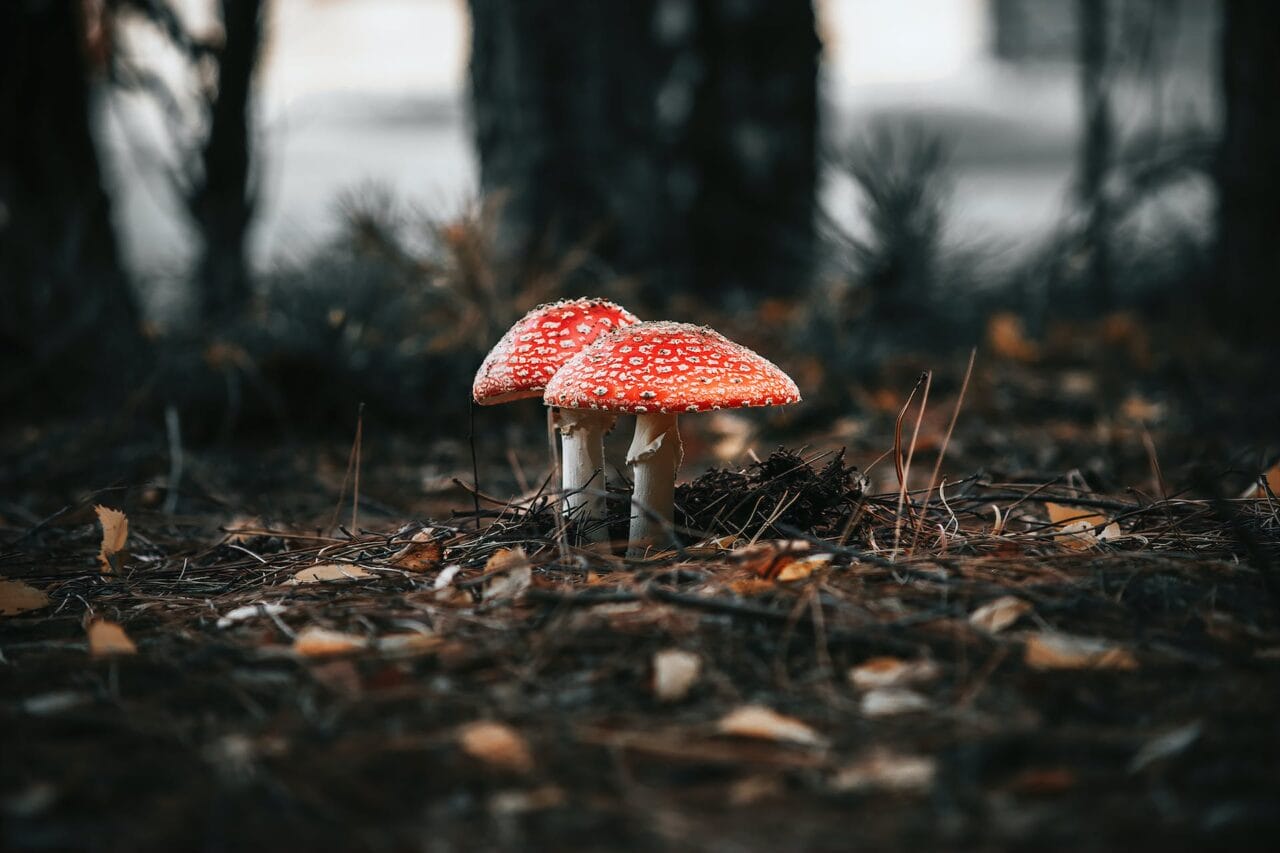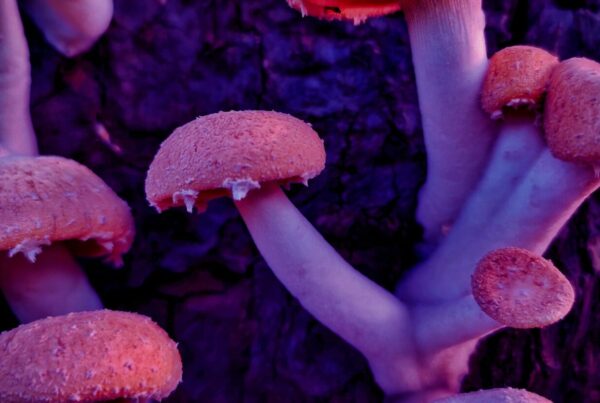Interest in psilocybin is growing, spurred by studies into its potential benefits for mental health concerns such as anxiety and addiction. However, despite the mounting curiosity, acquiring psilocybin remains a challenge. The number of labs and shroom delivery services supplying magic mushrooms is limited, and the prices can be quite high.
This piece will delve into the evolution of psilocybin, its current status, and the potential advantages it brings to those seeking help.
[toc]Main Takeaways:
- Mushroom cultivation requires considerable effort and careful monitoring to avoid contamination during the inoculation phase.
- Psilocybin generates a psychedelic experience by interacting with various brain regions, primarily the serotonin receptors.
- Psilocybin only marginally increases the heart rate, which returns to normal shortly after ingestion, and typically does not lead to other negative effects.

Crafting Only the Finest Quality Magic Mushrooms
Magic mushrooms naturally grow in diverse environments including manure-rich fields, leaf-covered temperate forests, grasslands, and woodlands. Over centuries, people have ventured into these areas to collect these fungi for medicinal purposes or for use in spiritual and religious rituals.
Conventional Approach
Today, the time-honored tradition of mushroom hunting in these natural habitats is less common. This shift could be attributed to the rise of alternative methods such as cultivation or the possibility of buying magic mushrooms online.
Wild mushrooms are usually less potent than those grown in labs, which are carefully nurtured under controlled conditions. Moreover, foraging in the wild carries the risk of accidentally picking a poisonous species.
Contemporary Approach
The shroom production process commences with a complex procedure to grow spores to maturity, which requires a
Meticulous attention and substantial time are invested to prevent any potential contamination during the inoculation process. Once the mushrooms are ready for harvesting, they are usually dried by labs or cultivators to extend their shelf life. While fresh mushrooms remain usable for only several days, dried ones can be preserved for several months, if not up to a year.
Manufacturers transform dried mushrooms into various formats, such as microdose capsules, edibles, tinctures, and beverages. These products are then distributed across Canada through magic mushroom delivery services.
Harnessing the Advantages of Psilocybe Cubensis or Magic Mushrooms
Researchers conduct clinical trials on mushrooms primarily to examine their impact on mental health and mood disorders, based on anecdotal evidence. A plethora of studies are exploring these effects, from microdosing via capsules to partaking in a mushroom trip with dried mushrooms or chocolate edibles.
Once consumed, psilocybin metabolizes into psilocin. This compound behaves similarly to serotonin, a neurotransmitter essential for mood regulation. It interacts with various areas of the brain, particularly serotonin receptors, to initiate a psychedelic journey.
Participants in psilocybin therapy often report substantial changes beyond just heightened senses and visual modifications. These experiences can lead to a noticeable shift in self-perception and a profound change in personal perspective, often marked by deep insights.
Depression and Suicidal Tendencies
In a study featured in the Journal of Psychopharmacology, the effects of a psychedelic experience on individuals grappling with depression and suicidal thoughts were explored. Most participants deemed their psilocybin encounter highly significant and underscored its potential influence on their lives. Such levels of satisfaction could enhance the effectiveness of therapy, given the crucial role of patient engagement in mental health interventions.
Safety Profile
In addition to studying the effects of psilocybin on depression and anxiety, researchers also examine the safety profile of this substance. A study in JAMA Psychiatry reveals that participants ingesting psilocybin experienced a slight increase in heart rate and blood pressure two hours post-consumption. However, further analysis using Holter monitoring indicated no significant increase in cardiac arrhythmias risk in the psilocybin group compared to the niacin group. The study also discovered
Users do not experience any significant psychological distress.





